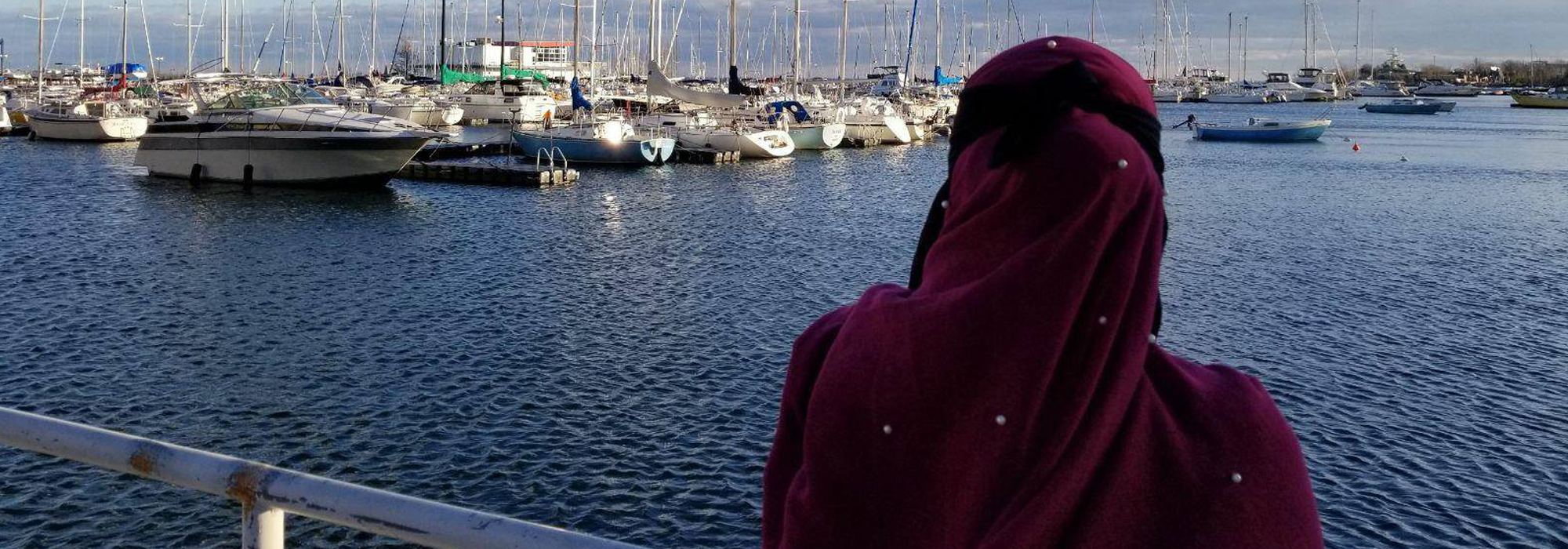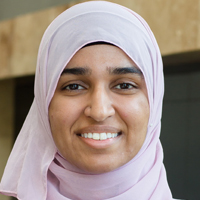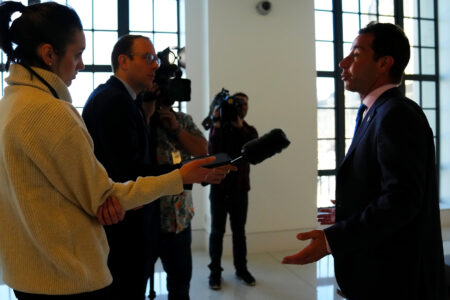
It seems that every few months an issue surrounding Muslims — and more often than not, Muslim women — comes up in the media. Religious texts are debated in mainstream discussions (often by those who have no training in religious studies, let alone Islamic texts or jurisprudence), laws are drummed up, and those who are most likely to be affected by any sort of policy change are left out of the conversation.
I have written about the hypocrisy of niqab bans in the past, but I do not wear the niqab myself. For that reason, I spoke to four Canadian women who choose to wear the niqab and to share their thoughts on a piece of legislation that, whether they live in Quebec or not, affects their daily lives.
Zainab bint Younus was at work as usual on Vancouver Island the day after the Quebec government passed Bill 62, when a customer refused to speak to her. The customer, an older white woman, cited the bill and mentioned it should be implemented everywhere.
This encounter is not out of the ordinary for women like Younus, 26, who has worn the niqab for nine years. With the niqab debate being part of public discourse over the past few years, the average person has read a lot about it, often without meeting or speaking to a Muslim woman, let alone one who actually wears the niqab. Is this not a problem in how we debate the niqab, or any issue, in this country?
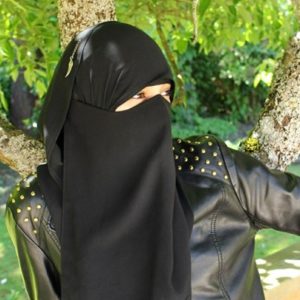
“People will be against it no matter what you say. I should not have to prove it or justify it,” Younus says. “I should not have to prove that I grew up in Canada and I speak English. Even if I was an immigrant, I should not have to justify that I am good enough. I should not have to justify my niqab just as I should not have to justify my rainbow socks or toque.”
The Quebec government has been unclear on what this ban entails. The justice minister has said the government is not telling women what to wear — although it seems to be doing exactly that in a roundabout manner. And although the bill does not cite specific religious symbols such as the niqab, most Muslim women have come to the conclusion that it is aimed at them, which raises the question of potential discrimination or Charter rights violations.
Women’s rights and feminism areoften cited by those in favour of the niqab ban, but a ban on clothing is an attempt to control what a woman can and cannot wear. This issue of control comes up in discussions by self-identifying feminists who cannot grasp that a woman may choose to wear a niqab, as Younus does. “The right to equality is the right to choose. I chose to wear it — respect my rights. If you are fighting for a woman’s agency, you have to accept my agency to choose,” she says.
In discussions with non-Muslims, I am often asked to explain the differences between the hijab, niqab and burka. Many people have opinions on these garments without understanding what they entail, or that a woman has a choice, or the potential cultural influences that shape a woman’s decision to cover. There are still misconceptions around identification in official settings — a non-issue, since women who wear the niqab or burka are willing to identify themselves when necessary. Women who choose not to cover their faces, like myself, or women who do not cover at all, are often questioned and scrutinized by both Muslims and non-Muslims about our choice.
Polarizing disagreements around Quebec or Canadian “values” or around “religious accommodation” also raise the spectre of citizens taking things into their own hands. Safety has been a concern for many women who wear the hijab, and even more so for women who wear the niqab, and they often mention that family or friends have discouraged them from covering for this very reason. Women who choose to cover (along with Sikh men) are the most publicly visible and most often harassed , because they are an easy target.
Younus is frustrated with the meek response from politicians of all levels who supposedly champion human rights. “This law justifies being nasty to Muslim women. It tells those who are bigoted and nasty that you don’t have to respect women and that it is perfectly okay to deal with them in a manner that you wouldn’t deal with anything [else] in the same manner.”
She goes on to say, “I do not expect anyone to agree or wear niqab themselves. Just the basic right that you accept people to wear what they want for whatever they believe.”
Rezan Mosa, a friend of mine, has been wearing the niqab for three and a half years. The 24-year-old from London, Ontario can pinpoint when harassment toward her increased following such events as the Parti Québécois proposed Charter of Values and commentary from Prime Minister Stephen Harper around women showing their faces at citizenship ceremonies.
“People don’t do their homework. So when they hear that niqab is a security threat, they internalize that and act accordingly. They don’t do the research on their own or speak to a Muslim woman. They start viewing these women like they don’t belong here and they need to do something about it,” says Mosa.
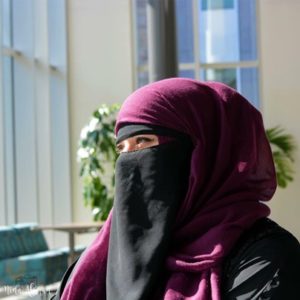
This attitude is frustrating for many niqab-wearing women who feel, once again, that they are left out of the conversation when such bills or policies come to the table. “Policy-makers do not speak to Muslim women or women in niqab when making law. You keep talking about laws and passing laws about me but you don’t give a crap about how I will feel,” says Younus.
I reached out to Fatima Ahmad, a student at McGill University in Montreal. She has been wearing a niqab for just over a year, and this bill will affect her the most directly. When she saw the news, it brought her to tears of disbelief and shock.
Ahmad, who is 21, described racism as part of her everyday life in Quebec. Although she has experienced verbal harassment, she still felt she could function in society. With this bill, however, things will change if she cannot use public transportation such as the metro or the bus. “I feel shunned from society,” she said. “It will not be possible for me to do anything unless this is overturned.”
Luckily the staff and faculty at McGill have been as supportive as possible — although the confusion of how the bill will be implemented has the general public confused and divided. There have been protests and demonstrations by both those who support the ban and those who are against it. This confusion has led to further concerns for Ahmad and other women over their safety.
In the one year since Ahmad has donned the niqab, she has faced at least 30 incidents of discrimination. Go back to your country. This is Canada. Is there a bomb behind that? It’s not Halloween. Many harassers do not even form coherent sentences — they just scream curses at her as they drive or walk by. One person physically assaulted her by pulling on her niqab. I asked Ahmad if she ever thought about going to the police. She paused before answering. “I never went to them before. I don’t want to make an issue about this.”
Many women fear that at some point someone will get hurt. But they do not want to “make a big deal” or draw further attention to themselves, hoping to be able to continue to go quietly about their daily business without their dress being politicized. Not to mention that many women do not believe the police will take their concerns seriously.
The media’s coverage of niqabis or of Muslim women in general also influences how the public views them. Maryam Desai has been wearing niqab for seven years. The 21-year-old Toronto resident was also dismayed by the bill and the coverage of niqabis in the media. “I’m afraid because what if this person reads the news on niqab and is judging me now. It causes more questions to arise.” She goes on to say, “It is hurtful because it’s Canada. The main reason our parents and grandparents came to Canada was to be free . . . Living in Canada, you’re free to wear whatever you want — but then you’re not.”
Desai too raises the point about Canadians living in silos and not interacting with one another — something many young Canadian Muslims have to address in their everyday relationships. “I’ve met a lot of people who will say, ‘Oh, you’re actually such a nice person. In the media we learn about people who dress the way you do and aren’t nice people.’ Well, yeah, you spoke to an actual Muslim. You need to befriend others. The privilege of living in Canada is being able to do so.”
Photo: Toronto resident Maryam Desai. Courtesy of Maryam Desai.
Do you have something to say about the article you just read? Be part of the Policy Options discussion, and send in your own submission. Here is a link on how to do it. | Souhaitez-vous réagir à cet article ? Joignez-vous aux débats d’Options politiques et soumettez-nous votre texte en suivant ces directives.



